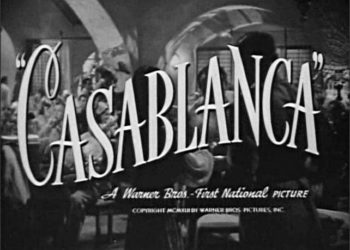
(Editor’s Note: For those active in the publishing/library/scholarly society meeting circuit, this October has been a particularly busy time. STM, followed immediately by the Frankfurt Book Fair and close on its heels, Charleston. Every email I send to our corps of Chef bloggers results in my inbox being filled with “out of office” responses. I’ve decided to use this busy time for reflection, to go back to older posts that I consider “Publishing 101”, and take a look to see how well they hold up. We recently revisited Michael Clarke’s post on disruption, and today I’ve chosen Joseph Esposito’s now classic 2010 post on the value of publisher brands. Other than a few details about Google’s books program, there’s little in here that isn’t just as vital six and a half years later. Although that Matrix reference could use updating…
Publishers’ brands are under attack from all sides. We hear, for example, about the “article economy” and the strongly held view that publishers add no value to the process of editorial development and the dissemination of materials. In the book world, the argument is that no one buys a book because of the name of a publisher; it’s the author’s name that counts. These arguments have implications. If publishers’ brands have little or no value, then publishers can be disintermediated. An author can deposit an article into an open access repository and then let Google do the marketing; a book author can work directly with Amazon and collect royalties of 70% on revenue, potentially dwarfing the income of the highly educated fools who write books for such firms as Random House or Springer. All this talk puts publishers into the humiliating position of having to jump up and down, shouting, “I matter! I matter!” There is so much glee on the part of those who believe that publishers and their brands do not matter that it almost seems uncompassionate to tell them that they are wrong.
Brands matter because authors think they do. The best brands attract the best authors — a virtuous circle, in which good authors strengthen brands and brands confer their aura on authors. I suppose there are some authors who do not want to get published by Oxford University Press, just as there are some parents that don’t want to send their kids to Harvard. (Presumably these are the same parents who tell their kids that they really do not need an iPhone; the Samsung will do.) But I have never met any of them. In the world of journals, authors know very well what it means to get an article accepted in Science or The Lancet. Part of the reason that institutional repositories have yet to make much headway vis-a-vis traditional publications is that most repositories trail the better journals in the strength of their brands.
Brands also matter to readers (consumers or end-users) in direct and indirect ways. Subscribers to journals acknowledge this when they pay for their subscription. For books, publishers’ brands matter in a direct manner to a greater or lesser degree depending on the circumstances. So, for example, the brand of Random House is thought not to matter at all to a consumer. (The sophisticated irony of the name “Random House,” with its mock self-deprecation, may be lost on the genericists, who might believe that “Random” in this context means “accidental” rather than “highly discriminating.”) But Random House controls other brands that absolutely matter to consumers: Fodor’s, Living Language, House of Collectibles, and so on. And I find it hard to believe that readers of literary fiction do not look for the Knopf imprimatur (another RH brand). Nor do I imagine that the prospective consumer does not experience a sense of respect upon viewing the orange spines of Penguin fiction or the names of the university presses of Princeton, Yale, or Chicago. Of course, some authors’ names or personal brands may matter more (Grisham, King, Mantel), but that does not mean that publishers’ brands matter not at all.
It is the indirect importance of brands that has the most influence on the individuals who purchase books. Most books are sold indirectly through channel partners such as bookshops, whether online or off, and the wholesalers that service them. Whether John Consumer knows anything about Duke University Press or HarperCollins is one thing, but the store where he shops certainly does. Shelf space is crowded; publishers fight hard to get access to retail venues. Professional buyers and wholesalers know which publishers have had the most success in the past and stock inventory accordingly. The distribution channels, that is, are not “dumb pipes” but a series of value-added filters whose aim it is to place the books with the greatest possibility for sale before the consumer. The publisher’s brand serves as a key way to identify the best books.
But surely in the online world this cannot possibly be true? Surely Amazon and the growing number of powerful Web retailers (now including Apple, with Google on its way) take advantage of the limitless real estate of the virtual world and stock each book impartially?
This they do not do. Online retailers, like their bricks-and-mortar cousins, make much of their money by favoring some books and publishers over others. While every book may make an appearance in an online catalog, the presentation of that book (that is, the book’s metadata) can vary considerably, and that presentation influences what we buy. Indeed, Amazon sometimes punishes publishers by removing the “buy” buttons to their books, frustrating consumers who find the book in the catalog but cannot immediately purchase it. Even when an online bookseller or intermediary claims impartiality, as Google apparently plans to do with its forthcoming Google Editions (and in my view, if Google is not impartial, it’s not for lack of trying), the publisher’s brand is “weighted” insofar as it has accumulated a network of connections and cross-connections that influence the way computer algorithms assess it and assign it a relative position.
Web bookselling is still in its infancy, but already sophisticated, robotic analyses of usage and metadata are influencing what consumers ultimately get to see when they make an online purchase. Only Amazon knows what Amazon does, but it takes little imagination to conjure an army of spiders crawling the Web, looking for books and their publishers, assessing pricing strategies in real time, making determinations as to which prices must be matched, which beaten, and which can be safely ignored. Publishers identify themselves in the metadata (typically ONIX feeds) they disseminate to the supply chain, and that identity comes to figure in the price a book is offered at, how it appears in search results, and the outcomes of collaborative filtering (“Readers who liked this book [by a certain publisher] also liked this other one”).
To say that brands don’t matter is to say that information comes to us unmediated. This is naive. No one reads a news item in an authoritative source without exercising at least mild and appropriate skepticism: Who says? Who has an interest in this item? Why is it coming to light now? (Viewers of Fox News and MSNBC may be exceptions to this.) But as consumers, we like to imagine that we can fortify ourselves against manipulation and influence, the chastity of our intellects more than enough to withstand the sly seductions of marketers. Brands matter because the modern networked world, like the world in the film “The Matrix,” is highly processed, and only a fundamentalist like Neo — Mr. Anderson — could hope it to be otherwise.
Discussion
2 Thoughts on "Revisiting: Why Publishers’ Brands Matter"
I’m surprised Joe did not point out why the brands of university presses matter, at least to tenure and promotion committees, viz., because they are known to follow peer-review procedures that guarantee quality. This differentiates them from all commercial publishers, though some of those publishers may also gain similar trust in academe over a period of years–such as the publisher I work for now part-time, Lynne Rienner. In the world of journal publishing, it is the brand of the journal that matters most, not the brand of the publisher, whether it is a university press or a commercial publisher. The quality of journals in a large commercial publishers’ portfolio varies over a wide range, and they have taken advantage of this variation in creating the “Big Deal,” which enables weaker journals to piggyback on the success of the stronger journals’ brands.


